Los hermanos Del Hierro [My Son, the Hero] (Ismael Rodríguez, 1961)
Mar
19
revenge
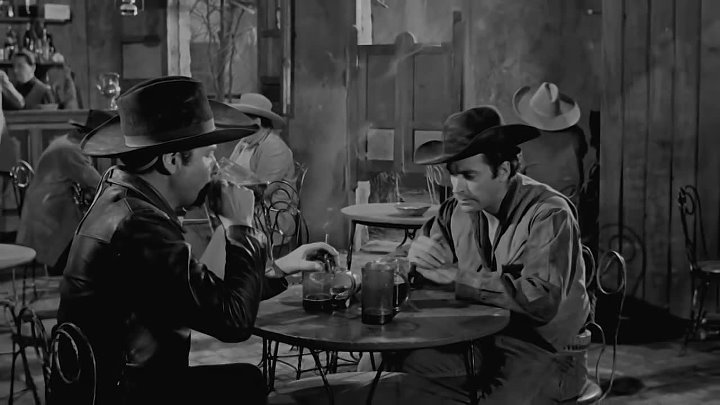
Brothers Martín (Julio Alemán) and Reynaldo Del Hierro (Antonio Aguilar) drinking in a cantina. Reynaldo, the older one, looks pensive while the younger takes a big gulp of beer. DP: Rosalío Solano.
A dish best served cold.
romance
Max et les ferrailleurs [Max and the Junkmen] (Claude Sautet, 1971)
Mar
16

Lily (Schneider) and Max (Piccoli) at a small table decked with good food, good wine, and quite a few wads of cash. DP: René Mathelin.
“Can we not admit that certain skilled men, gifted with intelligence, talent or even genius, and thus indispensable to society, rather than stagnate, should be free to disobey laws in certain cases?”Pickpocket (Robert Bresson, 1959)
Mar
12

Michel (Martin LaSalle) in a busy café, observing. An emptied water glass next to the thief should make him look like a paying guest. DP: Léonce-Henri Burel.
– Michel
“If an old man can't even have a glass of wine, what's left to live for?”I fidanzati [The Fiancés] (Ermanno Olmi, 1963)
Feb
29
leftovers
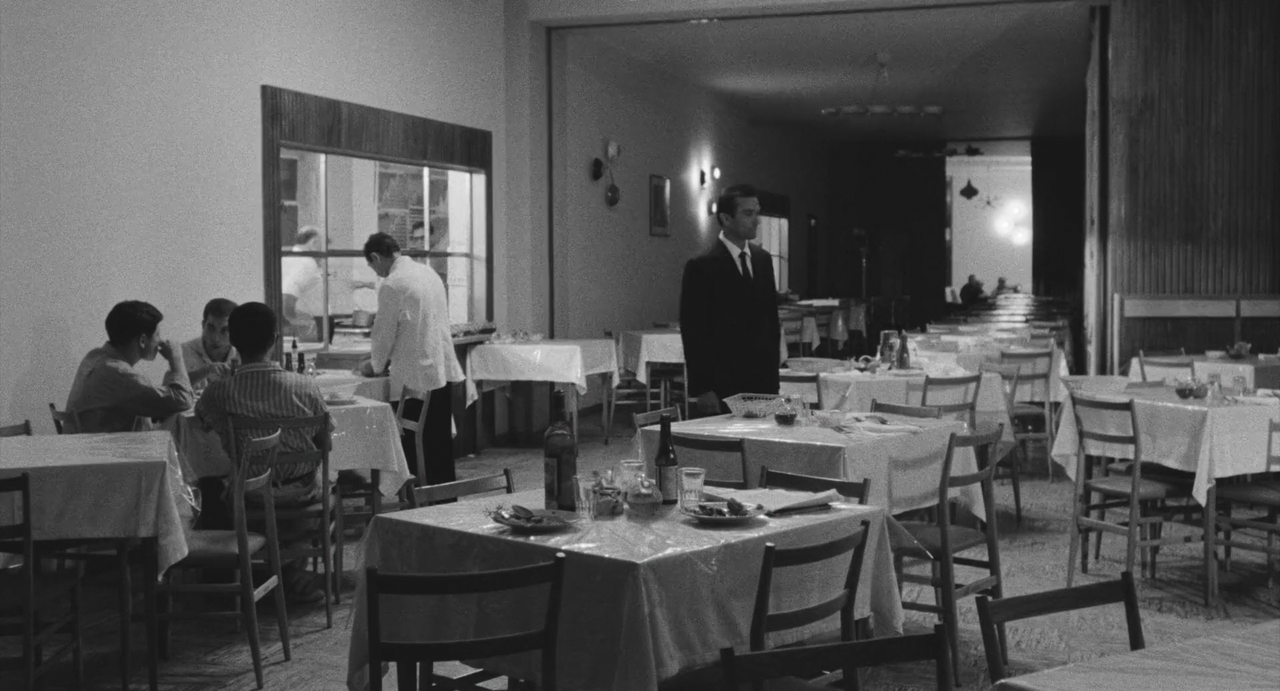
Giovanni (Carlo Cabrini) in a restaurant. It's near closing time. Cooks scape the pans. DP: Lamberto Caimi.
Les scélérats [The Wretches] (Robert Hossein, 1960)
Feb
26
canapés

Maid Louise (Perrette Pradier) holding a platter with canapés at a black tie party. Observing her is the master of the house, Jess Rooland (Robert Hossein). DP: Jacques Robin.
– Do you play?
– Try me.The Thomas Crown Affair (Norman Jewison, 1968)
Jan
26
champagne

A production photo showing Thomas Crown (McQueen) and Vicki Anderson (Dunaway) sharing foods and drinks. Them seem enthralled with each other. DP: Haskell Wexler.
“Roy, this is the land of milk and honey for the health racket. Every woman in California thinks she's either too fat or too thin or too something.”High Sierra (Raoul Walsh, 1940)
Jan
19
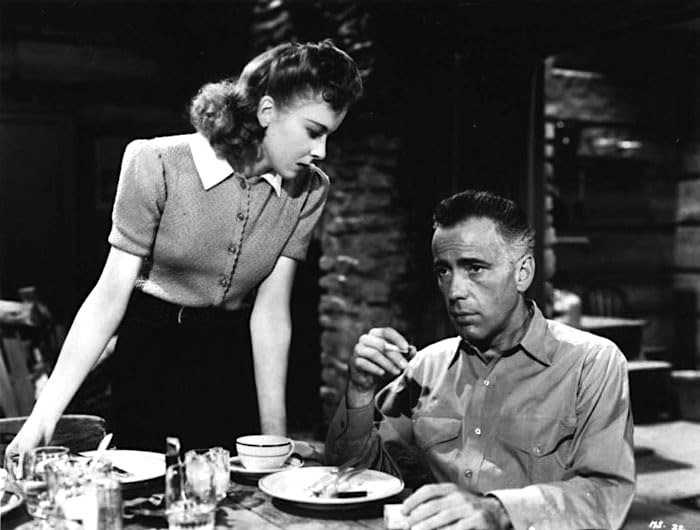
Roy Earle (Bogart) pensively smoking an after-meal cigarette while Marie Garson (Lupino) looks on. DP: Tony Gaudio.
– 'Doc' Banton
Ο Δράκος [O Drakos / The Ogre of Athens / The Ogre / The Vampire] (Nikos Koundouros, 1956)
Jan
2
Martini
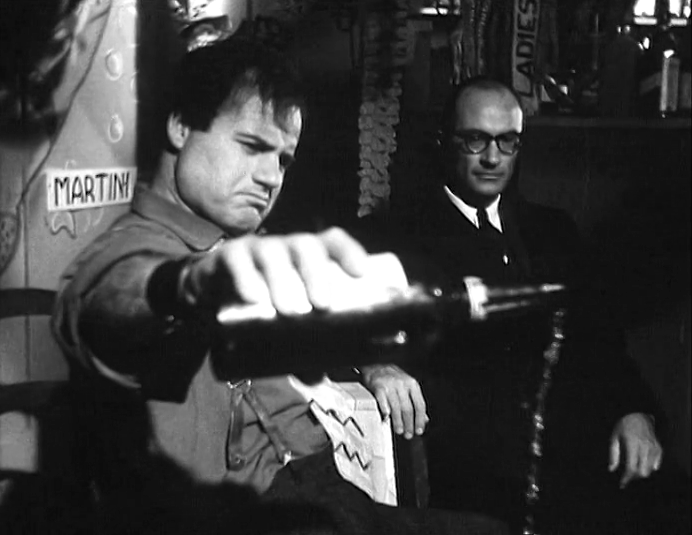
The boss, Hondros (Giannis Argyris), pours out a stiff drink on the floor of his cabaret with Mr Tomas (Dinos Iliopoulos) in the background. DP: Kostas Theodoridis.
The first film dinner of 2024.
Ο Δράκος [O Drakos / The Ogre of Athens / The Ogre / The Vampire] (Nikos Koundouros, 1956)
Dec
31
New Year's Eve
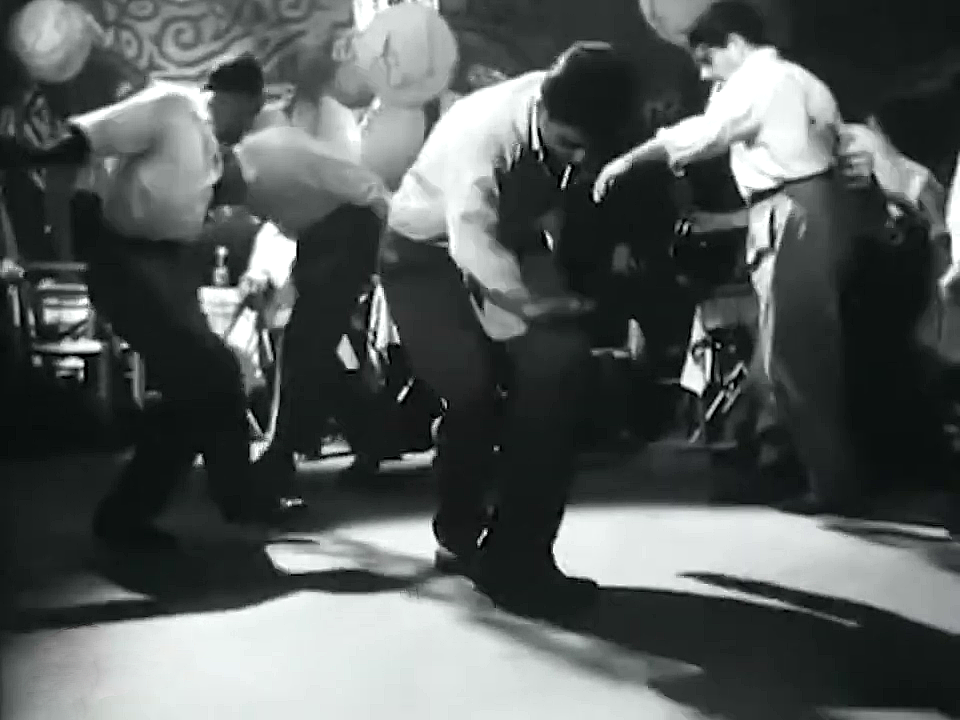
Men in identical white shirts and dark slacks dancing in the club during after hours. Their upper bodies seem top-heavy, tending to lunge towards the ground. DP: Kostas Theodoridis.
New Year's Eve celebrations.
A mousy bank clerk (Dinos Iliopoulos), who bears an uncanny resemblance to a criminal on the run, finds himself hiding in a shady cabaret on New Year's Eve instead of spending a quiet evening alone. During his forced stay at the nightclub, he comes to enjoy and identify more and more with his newfound persona and assumes the role of the notorious “Drago”.
An initial box office dud, it is now considered one of the top ten all-time best Greek films.
Happy new year, everyone! On to many more cinematic discoveries!
“We'll go back to Nice tomorrow. The Bay of Angels brings us luck.”La baie des anges [Bay of Angels] (Jacques Demy, 1963)
Dec
23
pears

A blonde Moreau at a restaurant table with a man seen from the back. There are several semi-empty wine glasses and pears sliced lengthwise on a plate, covered with a napkin. Jeanne's character Jackie Demaistre is holding a small sheet of paper with a schematic drawing of a roulette wheel while throwing the man a sceptical glance. DP: Jean Rabier.
– Jean Fournier